ON THIS PAGE
Exploring nature
The following lesson plans have a focus on exploring the natural environment.
- Exploring the local environment through the seasons (PDF, 1.6MB). Designed by DOC to help teachers plan various conservation activities throughout the school year. It includes ‘Restoration Through the Seasons‘ which helps teachers plan, implement and take action on restoration projects throughout the school year.
- Exploring your local environment. Unit for Levels: 1-4. Use this resource to learn about and develop connections to a local green space.
- Experiencing birds in your green space. Inquiry unit for Levels 1-4. Gather and interpret data about birds living in your school grounds.
- Experiencing invertebrates in your green space. Inquiry unit for Levels 1-4. Gather and interpret data about invertebrates living in your school grounds.
- Experiencing native trees in your green space. Inquiry unit for Levels 1-4. Use this resource to experience native trees in your school grounds or another local green space.
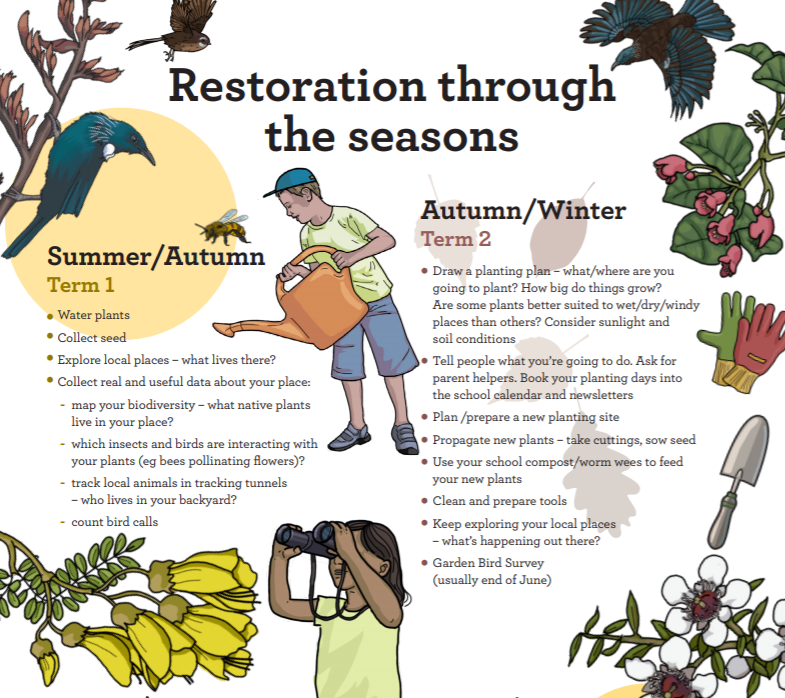
Investigating issues and taking action
The following lesson plans encourage the children to focus on an issue and work towards a solution.
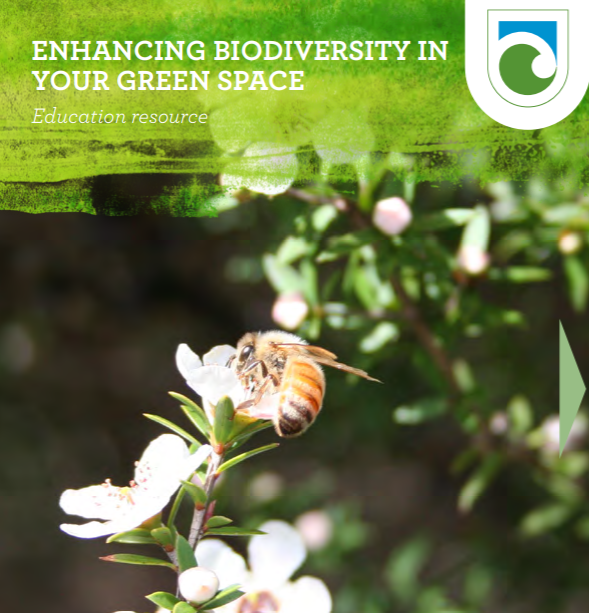
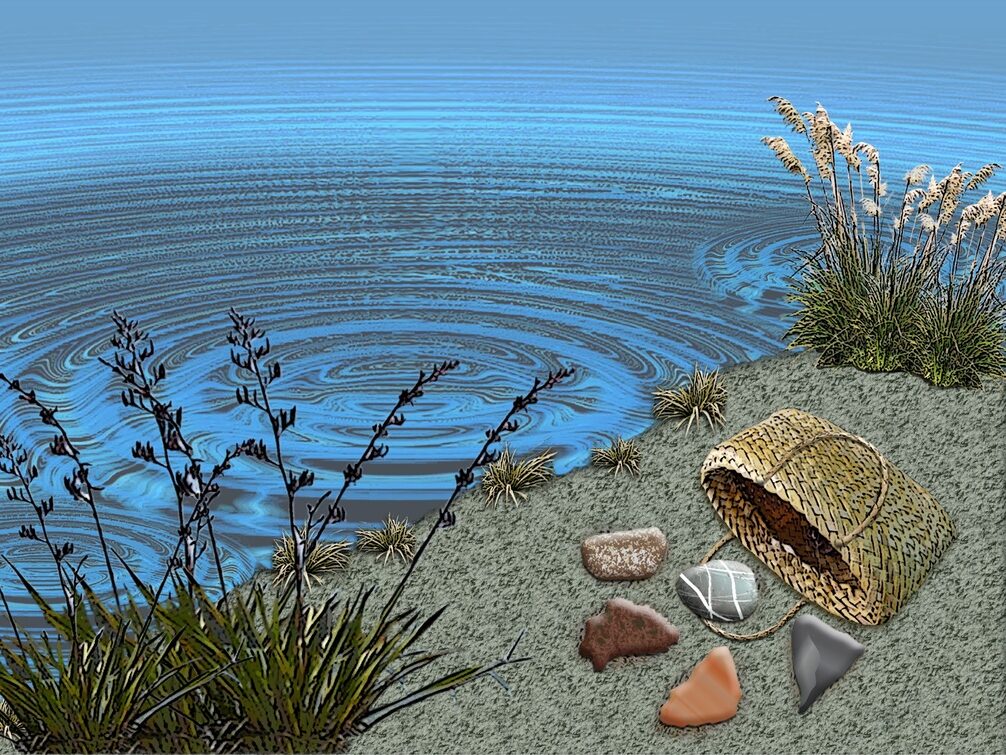
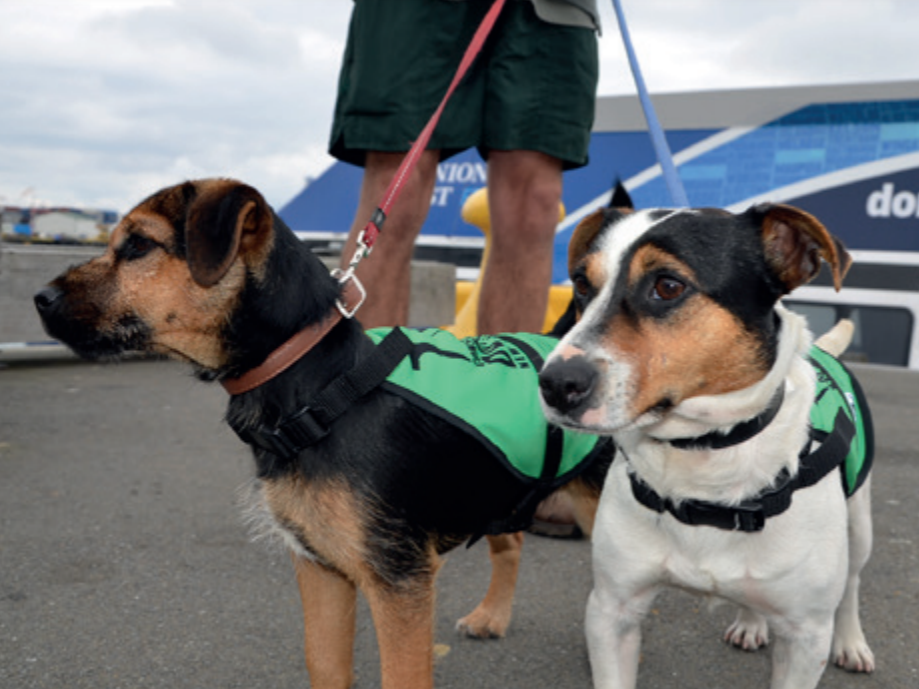
- Discovering issues and taking actions to restore wildlife (PDF, 95KB). Learning resource for Years 4-8. This guide encourages children to discuss issues impacting native wildlife, to find evidence in their own environment, and to think of actions to protect it.
- Investigating animal pests in your green space. Inquiry unit for Years 1-6, Levels 1-4. Use this resource to investigate introduced predators in your school grounds and begin to understand their impact on the environment.
- Enhancing biodiversity in your green space. Inquiry unit for Levels: 1-4. This resource provides ideas and learning experiences to enhance the native and endemic biodiversity in your green space.
- Tools for environmental action. Inquiry unit for Levels: 1-4. Use this resource to plan and carry out successful environmental action, alongside your local community.
- Can we make NZ Pest Free? Inquiry Unit for Years 4-8, Levels 1-4. This inquiry journey will allow students to be actively involved in improving New Zealand’s biodiversity through such actions as data collection, introduced predator control, wildlife monitoring and community engagement.
- Ethics thinking toolkit. This toolkit provides a structured framework for scaffolding student thinking about an ethical issue. Before students attempt using the Ethics thinking toolkit, it is recommended that you explore the ethical issue and ethical thinking with your students to establish a foundation for informed decision making.
- Ethics and bird conservation. A case study provides an example of introducing ethical thinking into the classroom to explore a controversial issue in science.
- Conservation dogs programme. Inquiry unit for Levels: 1-4. Use this resource to learn about conservation dogs and their role in Predator Free 2050.
- The how and why of possum control (PDF, 2MB). National Pest Control Agencies have developed a Teachers’ Booklet to assist with planning a unit of work based on possums and associated issues. The accompanying Students’ Booklet can be used as part of teacher planned study.
Special species
We’ve collated resources from around NZ about our unique and special species.
- Mahoenui wētā. Unit for Levels: 3-4. Find out how the wētā evolved, why it’s threatened and how we are protecting this ancient insect. This resource is supported by Meet the Locals episode Mahoenui wētā.
- Tāiko/black petrel education resource. Inquiry unit for Levels: 2-4. This resource is an integrated unit of teaching and learning material about the tāiko/black petrel and other seabirds, for use in primary schools.
- Kākāpō Recovery. A classroom activity for Levels 1-4 to learn about one of New Zealand’s most endangered species.
- Whio Forever. Inquiry unit that covers years 1-8. This classroom ready resource is broken into Junior and Senior levels and covers all aspects of the endangered whio / blue duck and how to help them.
- Science Learning Hub Conserving Native Birds Unit Plan. A science unit plan for levels 3-4 based around the evolution of our native birds and various conservation methods.
- Tūī Education Kit (PDF, 1.3MB). Level 3 programme focusing on tūī and their importance in New Zealand. Developed by the Banks Peninsula Conservation Trust for Canterbury schools.
- Morepork Education Kit (PDF, 1.5MB). Level 2 programme focusing on morepork and their importance in New Zealand. Developed by the Banks Peninsula Conservation Trust for Canterbury schools.
- Blue Penguins. Year 10 ecology curriculum on Blue Penguins, teacher notes and lesson plans.
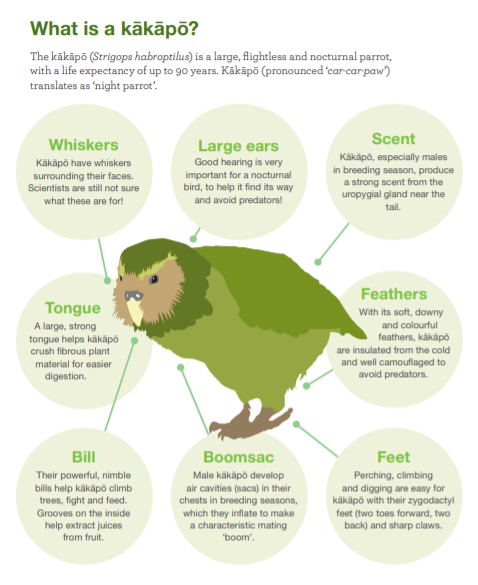
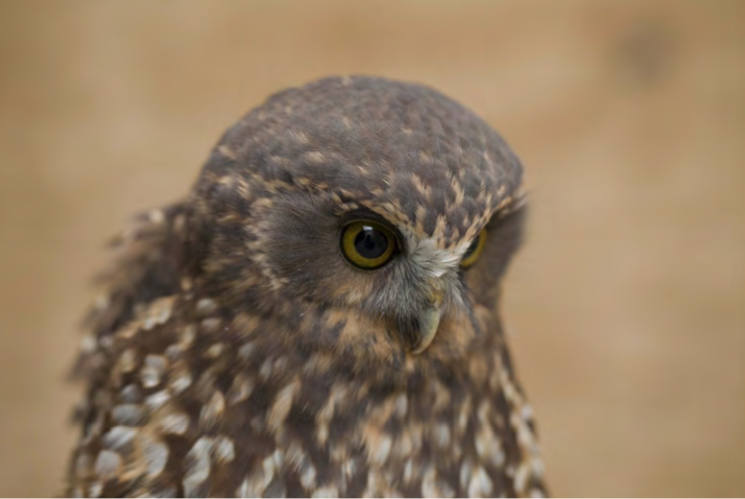
Tips for teachers
We’ve collated a couple of resources for teachers to help them teach in the classroom.
- Effective approaches to connect children with nature (PDF, 2.3MB): One just for the teachers. DOC presents principles for effectively engaging children and young people with nature.
- Teacher PLD webinars: DOC have created professional learning webinars with the Science Learning Hub.
Slideshows
- What is that animal pest? (PPT, 11.7MB) — there’s a mystery to be solved. This presentation from DOC provides signs and descriptions of pests – the ‘clues’ you need to identify the animal involved.
- Methods of predator control — this Science Learning Hub presentation allows students to consider some of the pros and cons of various methods of predator control in NZ. What’s good? What’s not? What do you think about the different methods and issues involved?
- Tawaki, Marathon Penguins — researchers have been studying the tawaki (Fiordland Crested Penguin), one of the world’s rarest penguins. Their findings have been summarised and presented in a clever cartoon by Giselle Clarkson.

